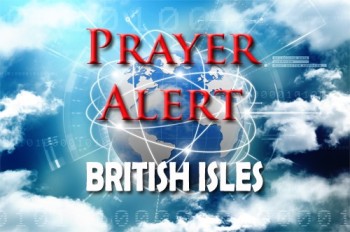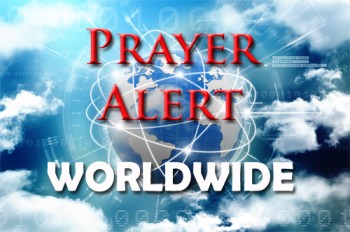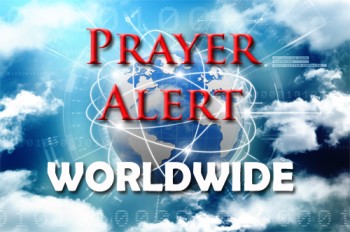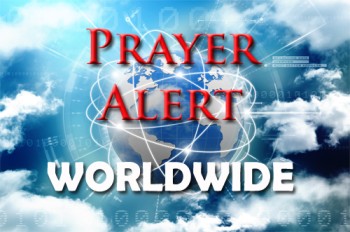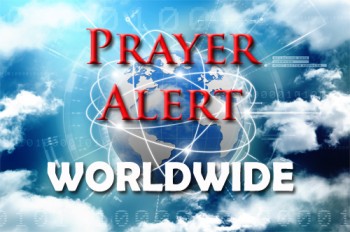Displaying items by tag: new law
New safe zones outside abortion clinics
From 31 October, safe zones around abortion clinics in England and Wales will take effect, prohibiting protests within 150 metres of these facilities under the Public Order Act. The new law, which received royal assent in May last year, aims to prevent harassment, intimidation, or obstruction of women seeking abortion services, as well as clinic staff. It is now illegal to engage in behaviour that intentionally or recklessly influences someone’s decision regarding abortion services. Silent prayer may also fall under this ban, a contentious point raised by anti-abortion groups who argue it infringes on their rights to freedom of expression and religious belief. Campaigners advocating for the ban, such as the British Pregnancy Advisory Service, argue that it is necessary for ensuring the safety and dignity of women. The maximum penalty for violating the law will be an unlimited fine. See
Afghanistan: new law restricts women even further
There have been very few opportunities in the last three years for women to escape from the bleakness of life under Taliban rule, with teenage girls having been barred from formal education. Now a new law has been passed which restricts their freedoms even further. The law enhances the Propagation of Virtue and Prevention of Vice Ministry’s control over Afghan citizens, worsening the already severe limitations on women’s rights. Many women are scared to speak or even leave their homes; activists like Nausheen, who previously protested and was once arrested and beaten, now refrain from public dissent due to the fear of violent retaliation. Some women are rebelling quietly, running secret schools and sharing their resistance through masked online videos. The international community, including the EU, has condemned the new restrictions as ‘systematic and systemic abuses, which may amount to gender persecution’. However, a government spokesman said the values laid out in the law are in line with Islamic traditions.
USA: legal challenges to tough Texas immigration law
A Texas immigration law, one of the nation's toughest ever, has been temporarily frozen by an appeals court. The law would empower officials to detain and prosecute individuals they suspect of entering the country illegally, overriding federal authority. Although the law briefly took effect during legal manoeuvres, a three-judge panel heard arguments on its constitutionality without issuing an immediate ruling. The Justice Department requested a delayed effective date if the law were to be upheld, intending to seek emergency action from the Supreme Court. Joe Biden's administration opposed the law, on the grounds that immigrant detention should remain in its hands. Mexico denounced the law as anti-immigrant, pledging not to accept individuals deported by Texas. The law’s potential reinstatement could signify a significant departure in immigration enforcement, challenging the traditional federal authority. Crossing the US border illegally is already a federal crime, but violations are usually handled as civil cases by the immigration courts.
Hong Kong: new law draws widespread criticism
There has been a wave of criticism over Hong Kong's new security law, known as Article 23, unanimously passed by the pro-Beijing parliament on19 March. It allows closed-door trials, extended detention without charge, and penalties including life imprisonment. 81 lawmakers and public figures from across the world have said that it undermines due process and fair trial rights and violates Hong Kong's obligations under international human rights law. Hong Kong's chief executive has defended the law, claiming it will protect against foreign interference. However, critics see it as ‘one more step towards the system of mainland China’, and describe a ‘chilling effect’ on civil society. There are also concerns that the law could also be used to target HongKongers overseas, or their families and friends back home. The law's passage marks another blow to Hong Kong's autonomy, tightening China's grip on the city.
Russia: new law targets critics of the military
On 14 February Vladimir Putin signed a law enabling authorities to seize assets from individuals convicted of spreading false information about the military. The law, approved swiftly by parliament, targets those discrediting the government or inciting extremism, potentially affecting exiled critics who have property in Russia. A Kremlin spokesman dismissed concerns about misuse, stating it aims to penalise traitors and scoundrels. The law expands on existing legislation which is used to silence dissent, particularly about the war in Ukraine. Thousands have faced imprisonment or fines for criticising the government. The timing of this new law, a month before the election in March, underscores the restricted political environment in Russia. Putin’s main rival Alexey Navalny is in prison, and Boris Nadezhdin, critical of the war in Ukraine, has been barred from standing.
Hong Kong: disruption, not law changes causing emigration
Although emigration is increasing because of the new national security law, many people will leave not because of communism or a lack of unfettered democracy, but due to never-ending disruption to their lives and careers and their children’s future. In October 2019 an annual survey of attitudes towards migration found 42.3% of Hong Kong respondents wanted to emigrate - mostly to Canada, Australia or Taiwan. It was 33% in 2018. Decades of political and economic uncertainty, combined with entrenched unresolvable divisions between people pleased to be rejoined with the mainland and those who still hanker for former colonial rule, has caused uncertainty and unrest. Hong Kong’s population planners concentrate on birth and death rates, but a meaningful force for population change has been migration. With little hope of earning enough to buy a family home, many may decide they have little to lose. Hong Kong’s property cartel is pushing inequality to the brink.
